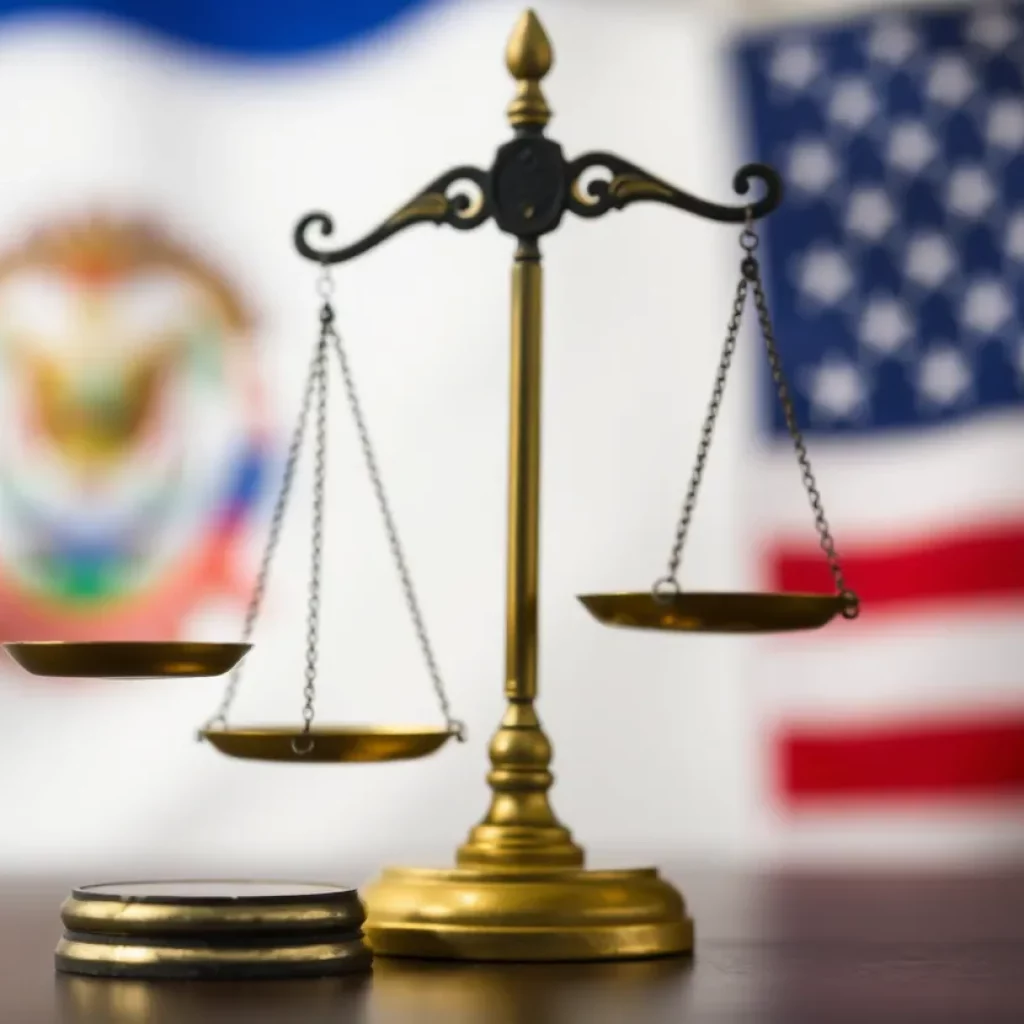News Summary
President Trump’s recent interview has sparked controversy regarding due process and constitutional rights, particularly in the case of Kilmar Abrego Garcia, who was mistakenly deported. Despite judicial orders for his return, Garcia remains in a detention facility in El Salvador, raising questions about immigration policy and rights of non-citizens. His wife’s ongoing advocacy highlights the emotional impact of their situation amidst political tensions between the U.S. and El Salvador.
Trump’s Doubts on Due Process Stir Controversy Amid Abrego Garcia’s Deportation Saga
In a recent interview, President Trump expressed significant uncertainty regarding the applicability of due process under the Fifth and Fourteenth Amendments for all individuals in the United States, igniting fierce debate over constitutional rights and immigration policy. The discussion arose during an interview with Kristen Welker, where the former president was asked whether he believes he must uphold the Constitution as president, to which he expressed, “I don’t know.”
Abrego Garcia’s Troubling Case
The national spotlight on Trump’s comments coincides with the complicated case of Kilmar Abrego Garcia, an El Salvadoran native married to a U.S. citizen who was **mistakenly deported** by the Trump administration in March 2025. Before his deportation, Abrego Garcia was a resident of Maryland, living in a household supported by his American spouse. His deplorable situation has stirred public concern, especially following the Immigration and Customs Enforcement’s admission of the deportation being an “administrative error” and an “oversight.”
Judicial Interventions and Continued Detention
Despite federal judges and the U.S. Supreme Court ordering the Trump administration to facilitate Abrego Garcia’s return, he currently remains in custody at a detention facility in Santa Ana, El Salvador. Notably, prior to his transfer to a low-security prison from the high-security Terrorism Confinement Center (CECOT), he spent nearly a month surrounded by harsh conditions. Abrego Garcia’s plight raises critical questions about the enforcement of judicial orders and the **rights of non-citizens**, as Trump hinted at differing interpretations of the Supreme Court’s unanimous ruling by the staff at the Justice Department.
Political Fallout Over Gang Allegations
The former president’s remarks were exacerbated by his assertion that Abrego Garcia had links to the notorious gang MS-13, which was cited as a reason for deportation. Reports describing Abrego Garcia’s physical attributes include **gang-related tattoos**, which have further fueled allegations of his potential danger. However, his family staunchly defends his innocence, emphasizing that he lacks a criminal record despite the domestic violence protective orders filed by his wife, Jennifer Vasquez, in previous years.
Vasquez’s Advocacy
Vasquez has become a vocal advocate for her husband’s return, lamenting their treatment and accusing authorities of negligence. She claims her husband has been “thrown away to die,” underscoring the emotional toll that the deportation has taken on their family. The couple’s struggle exemplifies the collision between personal hardship and governmental policies on immigration.
Political Implications in El Salvador
Abrego Garcia is currently being held under a state of exception declared by President Nayib Bukele of El Salvador, who has opted to disregard the Supreme Court’s orders regarding his return. This refusal echoes higher political tensions between the United States and El Salvador, intensifying concerns about *human rights* as Bukele’s administration is criticized for its treatment of detainees amid declarations that curb due process rights.
Calls for Congressional Action
In light of the contentious outcome of Abrego Garcia’s situation, U.S. Senator Chris Van Hollen has expressed his frustration with the Trump administration’s handling of the matter, spotlighting the need for due process and accountability in immigration enforcement. Following a recent visit with Abrego Garcia, the senator highlighted the profound trauma experienced by Garcia during his time in the CECOT.
Deportation Controversies and Moving Forward
The controversy surrounding Abrego Garcia’s deportation is entwined with broader issues of immigration law and the limits of executive power. While the Trump administration’s stance remains firm in rejecting his return, critics argue that this situation exemplifies a failure to adhere to the rule of law and constitutional protections for individuals, regardless of their citizenship status.
As national discourse continues to wrestle with these significant questions regarding due process, the plight of Abrego Garcia serves as a poignant reminder of the intricate balance between immigration enforcement and respecting fundamental legal rights.
Deeper Dive: News & Info About This Topic
HERE Resources
Lawyer Advocates for Rights of Deported Young U.S. Citizens
Lawyer Raises Concerns Over Deportation of U.S. Citizen Children
New U.S. Guidelines Unsettle International Students
Columbia Student and Activist Released from Immigration Detention
Broughton Injury Law: Pioneering Compassionate Legal Representation
Trump Administration’s Deportation Policies Impact U.S. Citizen Children
Concerns Raised Over Deportation of U.S. Citizen Toddler
Lawyers Unite as International Students Face Visa Termination Crisis
Trump Administration Reinstates Legal Status for International Students
Mass Self-Deportation Emails Shock Immigration Lawyer Community
Additional Resources
Author: STAFF HERE CHARLESTON
The CHARLESTON STAFF WRITER represents the experienced team at HEREcharleston.com, your go-to source for actionable local news and information in Charleston, Charleston County, and beyond. Specializing in "news you can use," we cover essential topics like product reviews for personal and business needs, local business directories, politics, real estate trends, neighborhood insights, and state news affecting the area—with deep expertise drawn from years of dedicated reporting and strong community input, including local press releases and business updates. We deliver top reporting on high-value events such as the Spoleto Festival USA, Charleston Wine + Food Festival, and the MOJA Festival. Our coverage extends to key organizations like the Charleston Metro Chamber of Commerce and the Charleston Museum, plus leading businesses in tourism and maritime industries that power the local economy such as South Carolina Ports Authority and the Charleston Visitor Center. As part of the broader HERE network, including HEREaiken.com, HEREbeaufort.com, HEREchapin.com, HEREcharleston.com, HEREclinton.com, HEREcolumbia.com, HEREgeorgetown.com, HEREgreenwood.com, HEREgreenville.com, HEREhiltonhead.com, HEREirmo.com, HEREmyrtlebeach.com, HEREnewberry.com, HERErockhill.com, HEREspartanburg.com, HEREaustin.com, HEREcollegestation.com, HEREdallas.com, HEREhouston.com, and HEREsanantonio.com, we provide comprehensive, credible insights into South Carolina's dynamic landscape.










